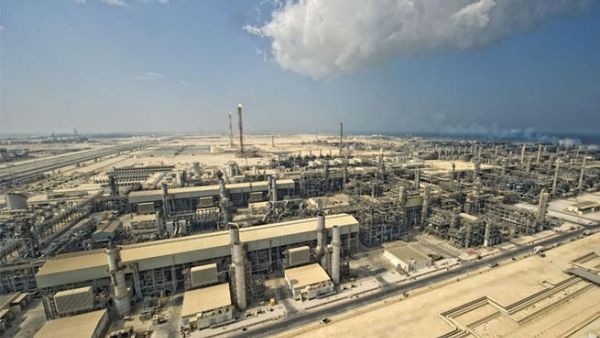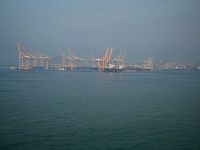The Gas Exporting Countries Forum (GECF) yesterday said investments on conventional gas would continue to be “robust” in the foreseeable future and it would favour “competing fuel-linked” pricing for gas.
GECF also said the present hydraulic fracturing (fracking) technology to extract shale gas would prove to be an “impediment” for future exploration because of environmental concerns but it would enhance global gas supply.
“Total reserves of shale gas are 2% and if you talk about production, it will be 6%. It is the reason why investments on conventional gas will continue to be robust,” GECF secretary general Seyed Mohamed Hossein Adeli said in his maiden media meet after assuming charge on January 1.
Asserting that gas is going to be the basic source of energy for this century, Adeli, an eminent economist, said there was no reason why countries should decrease investments in conventional energy sources.
Gas, which accounts for 23.5% of the global energy mix, is expected to improve its share to about 26% in the next decade; while that of oil, which is 33% now, should decline to 29%, he said, adding coal was also expected to witness decline in its share.
Highlighting that emission from gas is about 45% lesser than that from coal, he said gas should be more used than other polluting fossil fuels.
Asked whether gas price should be linked to oil or not as there have been calls for its de-linking by European and Far Eastern markets, Adeli said that in the long term, if buyers needed to feel secure about supply, they would go for oil-linked and “it continues to be the situation in the future”.
Those energy companies that are investing in developing conventional or even non-conventional sources would like to see long-term security of supply, hence they would also go for long term price, which are naturally oil linked, he said.
“I will love to call it alternative or competing fuel-linked pricing. Every country will choose energy mix according to their economies. Energy price are related to each other because it can substitute.”
On the US shale gas development, Adeli, a former diplomat, said it was beneficial as it would increase the global supply and highlighted that many of its member countries were inclined towards developing it.
However, the only concern is about the destruction of environment with the existing level of technology, according to him.
France already has a ban on fracking even as Europe votes to tighten rules on it.
“If the level of technology continues to be where it is, it will impede the development of future shale gas development because of environmental concerns,” Adeli said.
Asserting that GECF goes for environment and that its statute refers to sustainable development, he said it would join all voices that call for green development and those voices against destruction of environment.
“We would like to see the technology (for shale gas) to be developed in a way that it is possible to extract the gas without destructing environment.”
Seeking to raise its profile in the international arena, Adeli said GECF was currently working on developing a gas model, which would give outlook and updated information on global gas markets. This is expected to be launched by the second half of this year.
“We are developing on our comments and views about market behaviour and in future. We are working on a gas model and committed to operationalise it by the next half of this year.”
More countries may join GECF
The 17-member Gas Exporting Countries Forum (GECF) may see more countries joining it with many Asian, Latin American and African countries expressing interest.
GECF is a dynamic forum and might have more members and also observers in the future, its new director general Dr Seyed Mohamed Hossein Adeli said. Asked specifically how many countries are expected to join GECF this year, Adeli said he could not speculate on it.
“But there have been growing interests. There are names in Africa, Latin America and Asia,” he said without disclosing the countries’ names. “We are in the middle of exchanging views with them.”
At present, Doha-headquartered GECF has 13 members and four observers. The members are Algeria, Bolivia, Egypt, Equatorial Guinea, Iran, Libya, Nigeria, Oman, Qatar, Russia, Trinidad and Tobago, the UAE and Venezuela while observers are Iraq, Kazakhstan, Netherlands and Norway, together which account for 62% of the world’s proved natural gas reserves.

The 17-member Gas Exporting Countries Forum (GECF) may see more countries joining it with many Asian, Latin American and African countries expressing interest.







